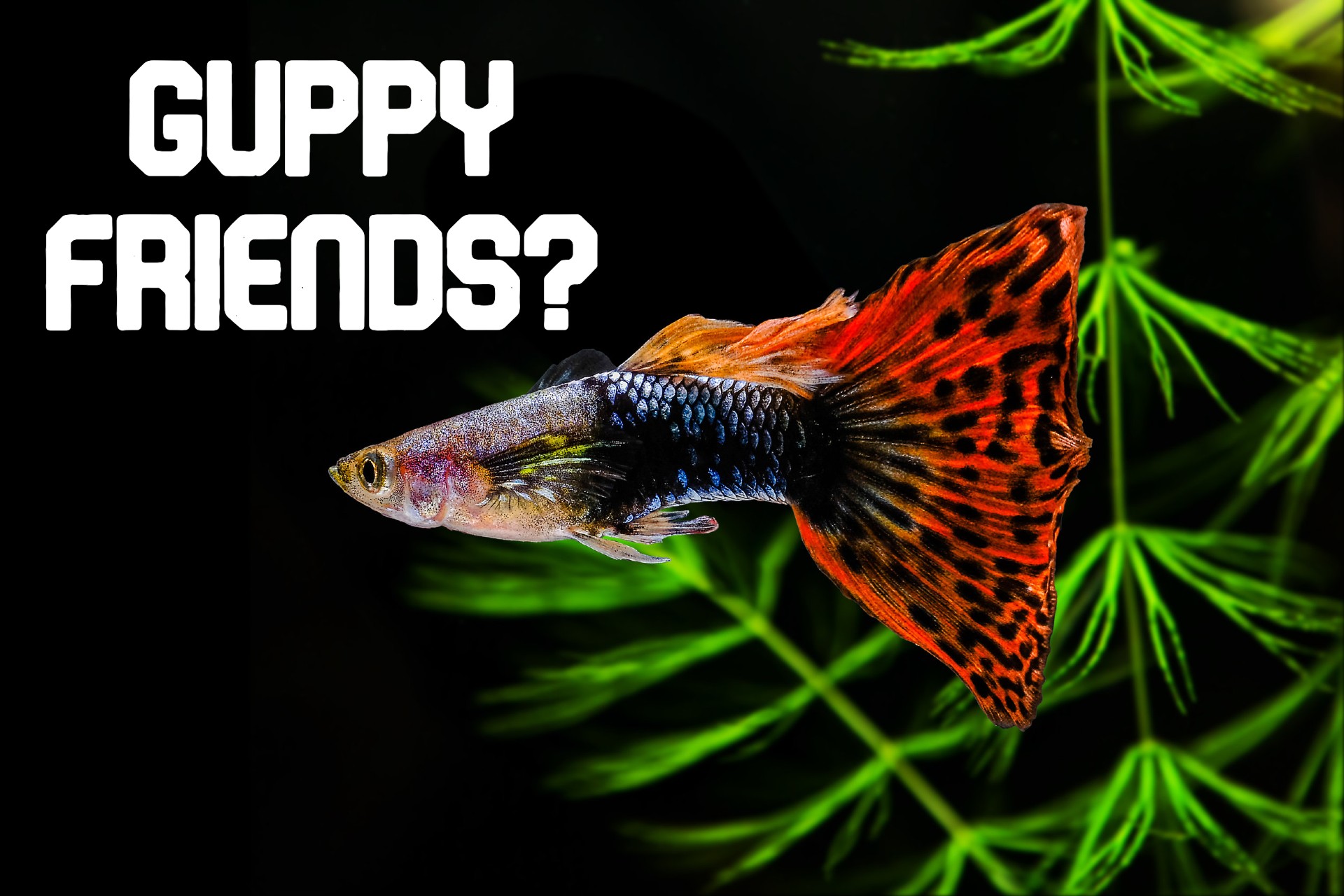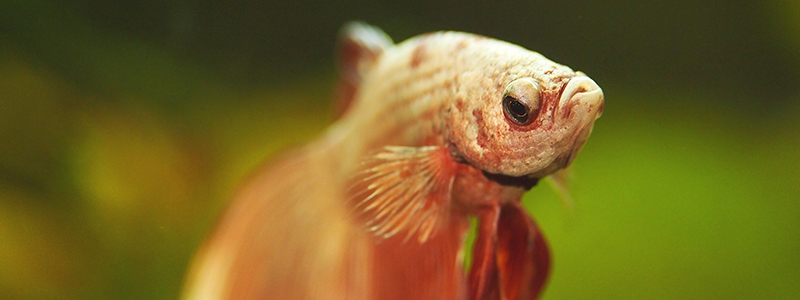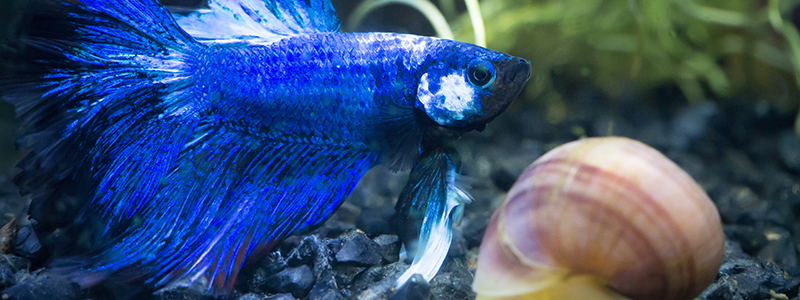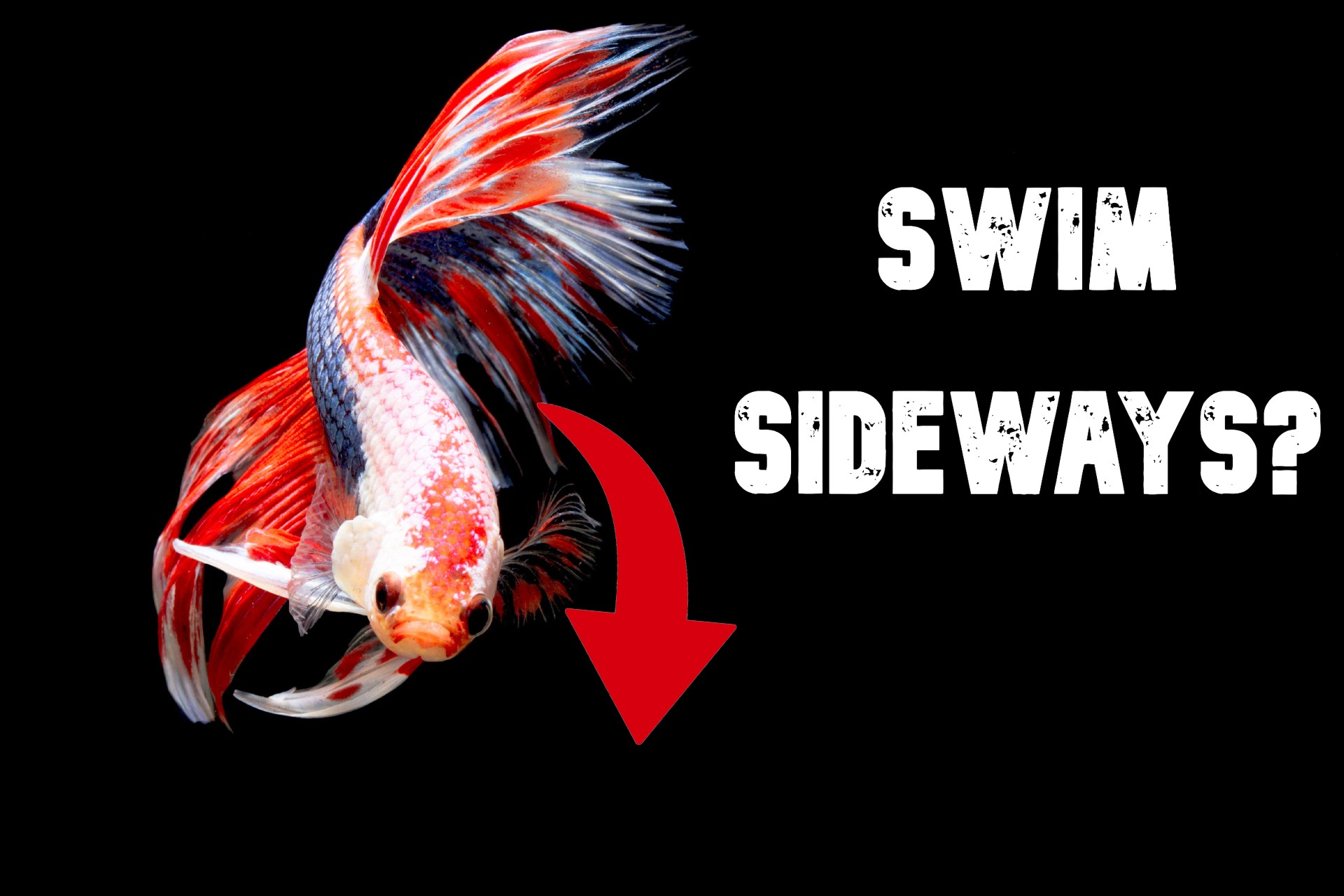Betta fish are fast-moving, interesting little creatures with rather hearty appetites. Due to this, it is quite concerning when your Betta stops eating everything he can. Let’s look at the reasons your Betta could possibly not be eating and how to remedy them.
If your betta fish isn’t eating, here’s a list of possible reasons why:
- You’ve changed foods
- Tank problems
- You just brought them home
- Illness
- Overfeeding
Did You Change Your Betta’s Food?
If you recently switched up your Betta’s food brands or even types, they may decide to be a bit picky. Bettas are intelligent and can recognize the differences between Brand A and Brand B, meaning if they are accustomed to Brand A and you decide to switch to Brand B, they may decide they dislike the food and refuse it.
There are two ways you can fix this situation. For starters, you could just switch back to Brand A and let your fish continue to eat it. If this is not an option due to your own preferences, budget, or food availability where you live, then you will have to go for the more difficult route.
Bettas will eat. They will not starve themselves forever. Try fasting your Betta for a couple of days and then offer them food they refused. They will likely eat it and be fine with it from then on. They are just a bit fussy and want to make a big show of it all, first.
Another potential food-related issue could be that they do not like the food’s temperature. If you are feeding frozen or freeze-dried foods, your pet may prefer the foods to be fully thawed or softened first. If this is the case, try letting them thaw in some warm water before giving them to your Betta.
Sometimes, Bettas do not recognize food as food, especially if it is a new brand or a type they are not familiar with. For example, if a Betta who is used to freeze-dried food is offered pellet food, he may just see it as a bit of debris and not actual food. If this is the case, you may just have to wait it out or try a different food type.
Lastly, your Betta may just dislike the food and think it’s of low quality. It sounds absurd but Bettas can actually tell if the food is not good quality, as it impacts their body negatively. Additionally, he may just be bored of receiving the same food every single day. Try giving a varied, balanced diet to help keep him enticed and happy.
Check Your Water Quality or Tank Setup
If your fish’s food is fine, chances are it may be a problem with the tank that is causing your Betta to refuse to eat.
One of the most common issues is simply the water temperature. If your Betta is experiencing a temperature that is too low, he will be less inclined to eat or really move around much in an effort to save energy.
Bettas are cold-blooded which means the temperature of the water that surrounds them equals out to be its body temperature, as well. Ideally, a Betta’s tank temperature should stay between 78 and 80 degrees Fahrenheit, never dipping below 76 to prevent shock. When the temperature dips below this point, your Betta’s metabolism drops, leading to it eating less.
Bettas are very sensitive to their tank in general and changes could trigger them to stop eating. Something simple like switching up the decor and rocks could, as could more serious things like ammonia spikes and pH changes. Test regularly for these and remedy them as soon as possible to prevent any issues.
You Just Brought Them Home
If you just purchased your Betta, congratulations! You are going to love your new pet. Also, you should not worry too much, Bettas are prone to fasting when moved to a new location due to the stress of it all. Give them a few days and see how they’re doing; they should perk up and be fine before the week is out.
Illness
Despite there being a lot of other potential causes for your fish not eating, sometimes there are actual medical reasons behind your Betta’s decision not to eat. Let’s go over a few of these.
Perhaps the most common disorder that can trigger your fish not to eat is dropsy. Dropsy in fish is characterized by a buildup of fluid in the fish’s body, resulting in lowered bodily function and mobility. As a symptom, rather than a disease in itself, dropsy can be caused by a host of different base illnesses.
Liver disease, parasites, bacterial infections, and other issues can all trigger a bout of dropsy. Due to this, dropsy may or may not be contagious. Unfortunately, once a disorder reaches the point of dropsy it is likely to be fatal unless you can figure out and treat the base illness quickly. Either way, fish with dropsy should always be quarantined to prevent the potential spread of their illness.
Swim bladder disease is another common cause of fasting in fish. Also known as flip over, swim bladder disease occurs when the internal gas-filled organ known as the swim bladder becomes unable to assist in maintaining the fish’s buoyancy. This is usually caused by either internal parasites or by high nitrate levels created via overfeeding.
A strange but very effective remedy for swim bladder disease is to feed your fish a green pea, skin removed. It works wonders and will help get your fish swimming normally and back to eating his regular meals. If all else fails, a veterinarian will be able to do a procedure involving placing a tiny stone in the swim bladder or removing the impacted areas.
Overfeeding
Though this may sound a bit counter-intuitive, overfeeding your Betta can also play into it not eating. Your fish should only have a few pellets or the equivalent amount of other food sources once a day. If they are eating more than this, chances are they are being overfed.
This can lead to your Betta’s digestive system becoming backed up. When this happens, they will not eat since they recognize that they are having difficulties passing food items. To help remedy this, you can try the green pea trick listed above.
Slowing down your Betta’s food intake will help them in many ways. It may seem like a tiny amount but your Betta’s stomach is only as big as its eye, so it really does not need much in the first place.
A Few Tips and Tricks
If you want to help ensure your Betta does not have problems feeding, you can take a few steps each day to benefit his overall health and dietary habits.
- Feed your Betta a varied, balanced diet full of different food sources that are packed with protein and nutrients. Cheap pellet foods may be good for your wallet but in the wild Bettas eat a wide variety of food including worms and larvae, so try your best to mimic this at home.
- Additionally, your Betta can be given a little boost of fiber routinely via green peas or other soft vegetables if they seem to be having difficulties regularly passing waste. This fiber helps keep their digestive system moving which will have them feeling better in no time at all.
- Try to keep an eye on the ammonia, nitrite, and other levels in your tank. Stress is perhaps the number one killer of fish in the world so keeping things stable is key in making sure your Betta thrives. Check on the pH levels and temperature regularly, too, for good measure, and make sure you are using high-quality, treated water in the tanks, as well.
- Lastly, make sure your tank is not too small and is properly filtered. Bettas are, unfortunately, subjected to a bit of misinformation. Many people believe that Bettas can be kept in vases or small containers with no issues.
Bettas thrive in tanks of five gallons or more and need good filtration to keep the ammonia and nitrite levels in their tanks balanced. You cannot stick them in a vase with a few inches of water and expect them to thrive. This idea is outdated and damaging to your fish. In fact, these types of enclosures actually dramatically shorten the lifespan of a Betta and contribute to a massive amount of regular illnesses and infections that are present in the current Betta population.
Conclusion
There are several steps you can take to help ensure that your Betta eats a healthy amount of food. Space out the feedings to twice daily with just a few pellets at a time and offer fiber as needed. Make sure the tank is clean and balanced to help ensure your fish is not stressed.
Bettas are notorious for being a bit finicky when it comes to food. Give him a bit of time and he will come around and be back to his ravenous self! If all else fails, try new food!





